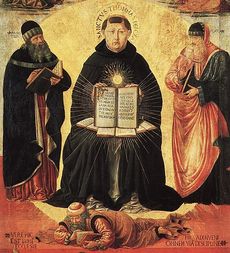8.11.2022, 15:00-The origin and destiny of the soul: Dante and Islamic culture between contiguity and distance
8.11.2022, 15:00-The origin and destiny of the soul: Dante and Islamic culture between contiguity and distance

Data inizio: 08/11/2022
Data fine: 08/11/2022
Ora: 15:00-17:00
Seminar series “Literature and texts” / Lecture module "Cultural studies"
Classroom 4 - Building D
Abstract The intervention places at the center of the theory of the soul in Dante the lectio given by Stazio in canto XXV of Purgatory (vv. 37-108), where some speculative contents of Greek-Islamic origin and mediated by Latin sources (Alberto Magno, Tommaso d’Aquino) have significant points of affinity with the ideas of Avicenna, but diverge from the theories of Averroè, even from the poet among the limbicles endowed with the Aristotelian virtue of megalopsychìa. The doctrinal articulations of this different option will be studied in depth, according to a hermeneutic path that indeed highlights the philosophical and theological presuppositions, but arrives at the ultimate reasons, albeit delayed, of a prevalently metaliterary nature, so paradoxically the two Arab thinkers, in indirect and oppositional confrontation, become functional to a more solid, original and credible structural basis of the poem.
Speaker Alberto Granese University of Salerno
Coordinator Rosa Giulio University of Salerno
Classroom 4 - Building D
 -Download the brochure
-Download the brochure
Abstract The intervention places at the center of the theory of the soul in Dante the lectio given by Stazio in canto XXV of Purgatory (vv. 37-108), where some speculative contents of Greek-Islamic origin and mediated by Latin sources (Alberto Magno, Tommaso d’Aquino) have significant points of affinity with the ideas of Avicenna, but diverge from the theories of Averroè, even from the poet among the limbicles endowed with the Aristotelian virtue of megalopsychìa. The doctrinal articulations of this different option will be studied in depth, according to a hermeneutic path that indeed highlights the philosophical and theological presuppositions, but arrives at the ultimate reasons, albeit delayed, of a prevalently metaliterary nature, so paradoxically the two Arab thinkers, in indirect and oppositional confrontation, become functional to a more solid, original and credible structural basis of the poem.
Speaker Alberto Granese University of Salerno
Coordinator Rosa Giulio University of Salerno